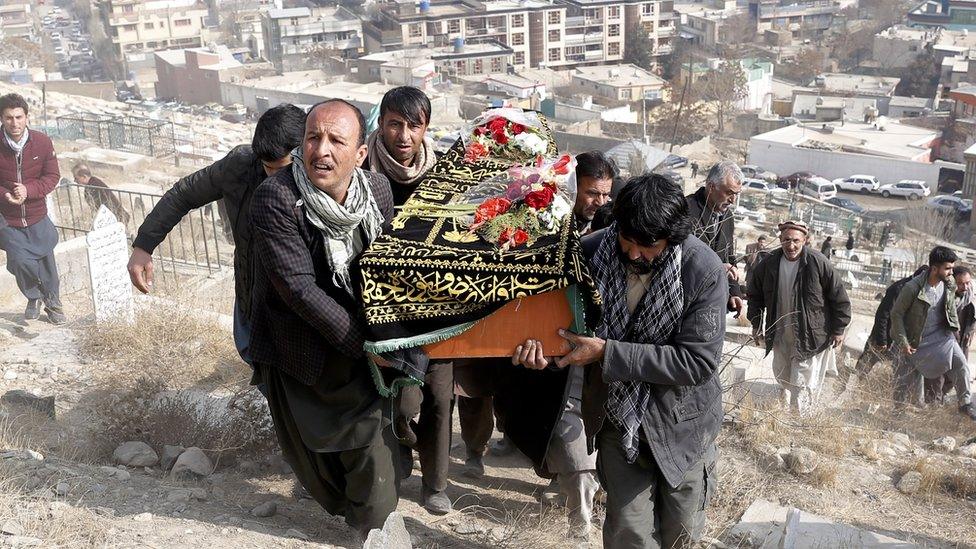Taliban officials 'in talks with Afghan government', US says
- Published
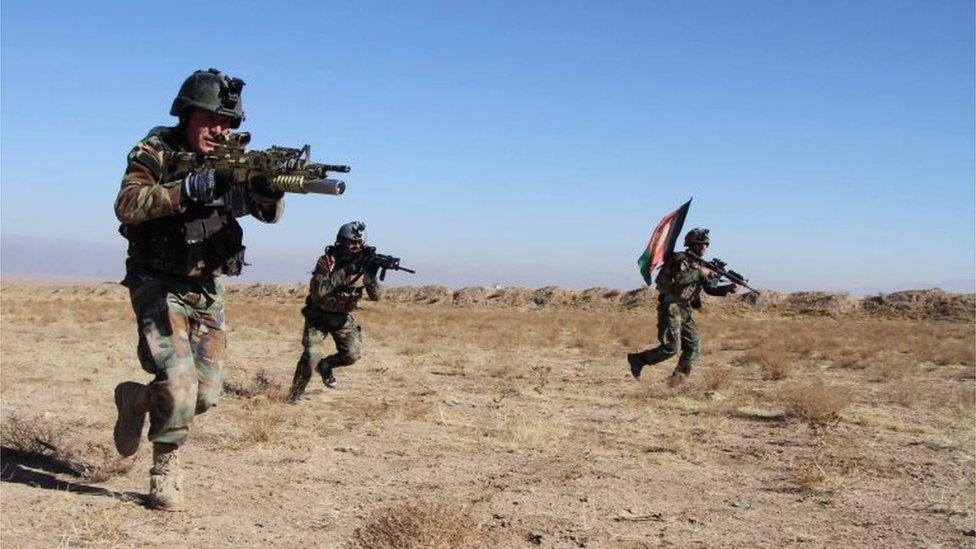
The Afghan army has suffered mounting casualties
The Taliban have held secret meetings with Afghan officials to discuss a ceasefire, the US military says.
The US commander in Afghanistan, Gen John Nicholson, said the talks also involved foreign governments and international organisations.
However, the Taliban has rejected this as a "false claim".
The Taliban have generally refused to negotiate with the Afghan government, insisting instead on discussions with the US.
In recent months, violence has continued with mounting casualties on both sides.
On Wednesday, the militants launched an attack on the interior ministry in Kabul, demonstrating their ability to carry out strikes in the capital.
The insurgents also said they carried out another attack on a police station, in the capital of Logar province.
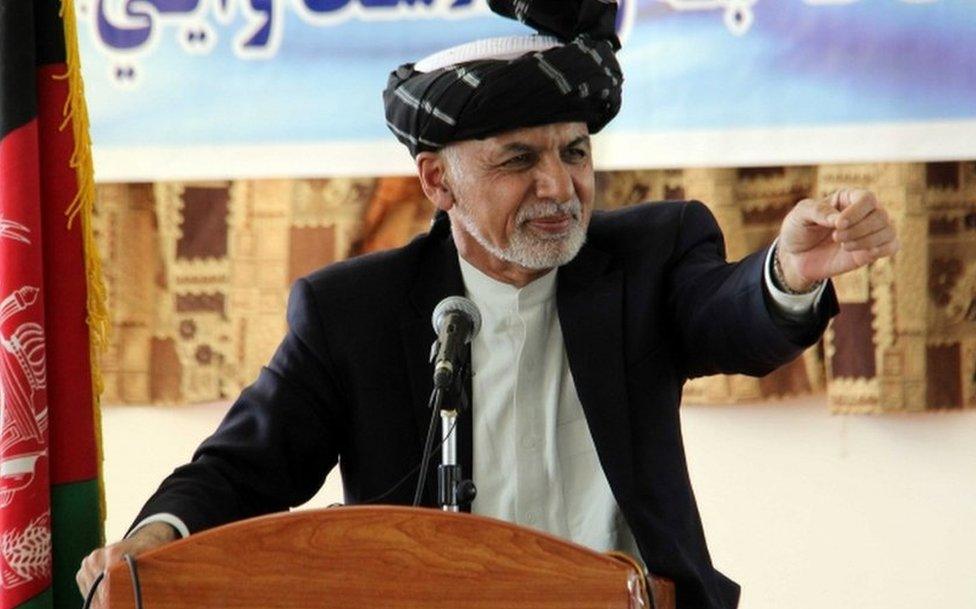
President Ashraf Ghani wants a ceasefire
The US, meanwhile, confirmed strikes against the insurgents in Helmand province with "more than 50 casualties".
Speaking on Thursday, Gen Nicholson said violence and progress could coexist, and compared the situation to Colombia - where a 50-year civil war led to a peace treaty.
He would not identify the figures involved in the negotiations, except to say that they included mid- and senior-level Taliban officials.
However, the Taliban rejected the claims, saying the group did not "want to waste time in the name of talks" with the Afghan government "in the presence of the occupying forces".
Afghan President Ashraf Ghani has previously proposed negotiations with the Taliban, saying they could be recognised as a political party if they accepted a ceasefire and recognised the country's constitution.

Getting the upper hand
Dawood Azami, BBC World Service
The Taliban have shown an openness to talks in the past, suggesting that, in addition to the armed struggle, negotiations were a "legitimate" way of achieving their main objective: an end to what they call the "occupation by foreign forces".
But the Taliban have always insisted that any initial talks would only be with the US, whom they consider the main party in the conflict. The group views the Afghan government as weak, divided and unable to make decisions on big issues, including the full withdrawal of US/Nato forces, releasing their prisoners and the removal of Taliban officials' names from sanctions lists.
On the other hand, the US insists that the Taliban must talk to the Afghan government. US officials say that the war in Afghanistan is primarily between the two Afghan sides, and that the US cannot substitute for direct negotiations between the ruling government in Kabul and the Taliban.
But the war between the Taliban and the Afghan and US/Nato forces is currently intensifying, with both sides trying to get the upper hand. The stalemate doesn't seem to be breaking in either party's favour.

Taliban insurgents control more territory in the country than at any time since foreign combat troops left in 2014, BBC research published in January showed.
It is estimated that about 15 million people - half the population - are living in areas that are either controlled by the Taliban or where the Taliban are openly present and regularly mount attacks.
Attacks in recent months claimed by either Taliban or Islamic State fighters have killed scores in Kabul and elsewhere, demonstrating the Taliban's capability to carry out strikes even in the heart of the country's capital.
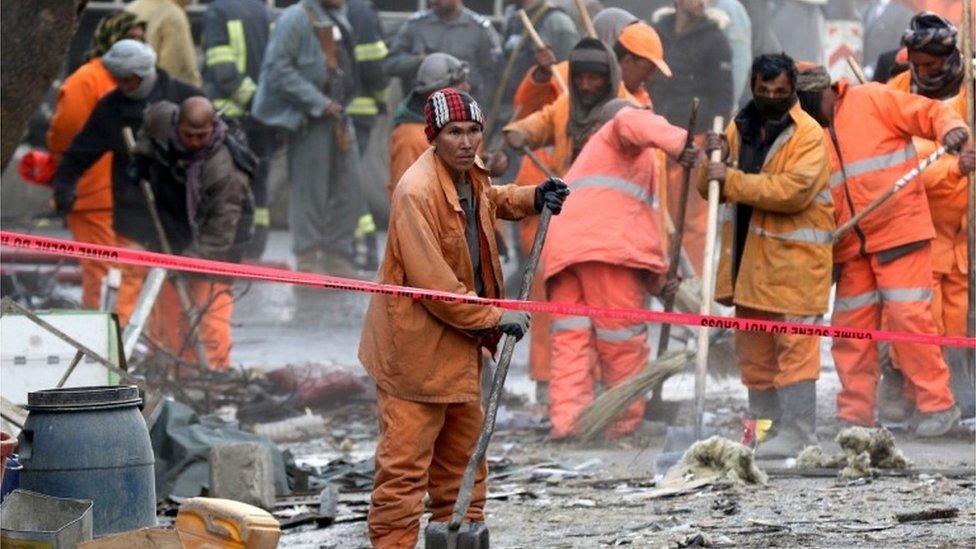
Cleaning up in Kabul - the capital keeps getting hit by attacks
Who are the Taliban?
The hardline Islamic Taliban movement swept to power in Afghanistan in 1996 after the civil war that followed the Soviet-Afghan war, and were ousted by the US-led invasion five years later.
In power, they imposed a brutal version of Sharia law, such as public executions and amputations, and banned women from public life.
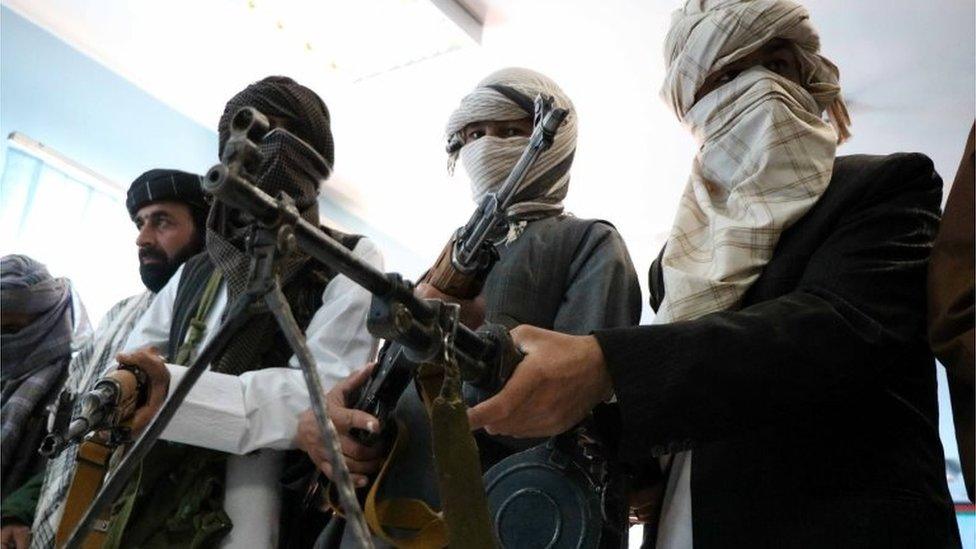
Some former Taliban have surrendered, but the group has grown stronger in recent years
Men had to grow beards and women had to wear the all-covering burka; television, music and cinema were banned.
They sheltered al-Qaeda leaders before and after being ousted - since then they have fought a bloody insurgency which continues today.
In 2016, Afghan civilian casualties hit a new high - a rise attributed by the UN largely to the Taliban.

- Published25 May 2018
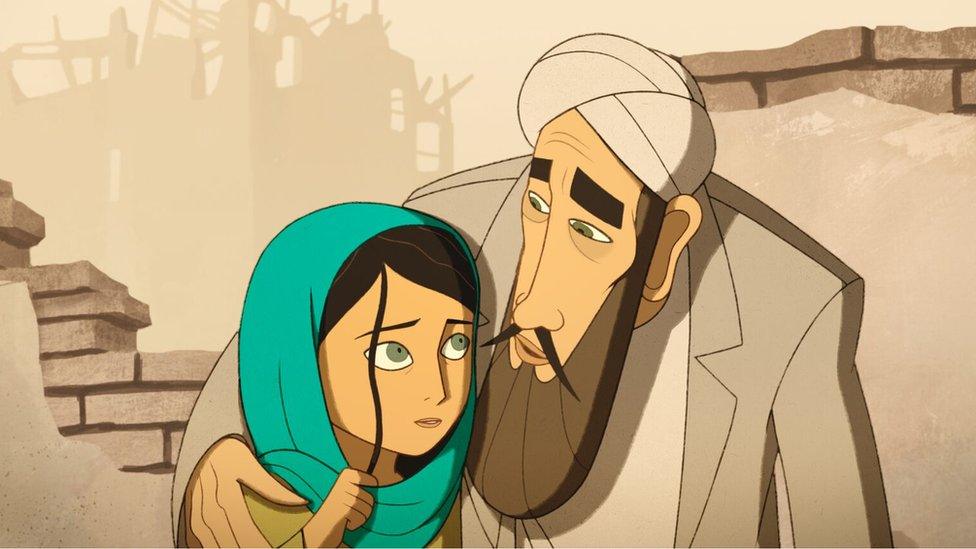
- Published8 May 2018
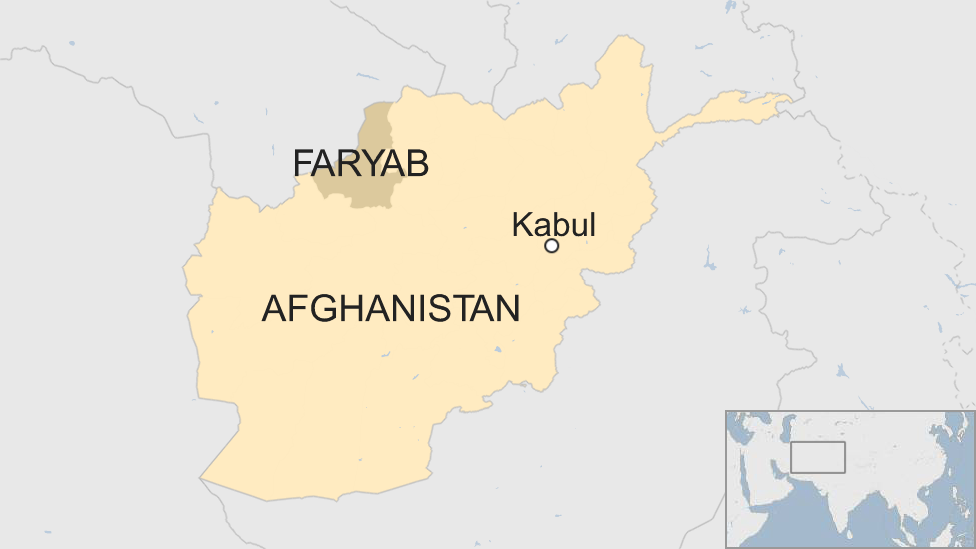
- Published2 April 2018
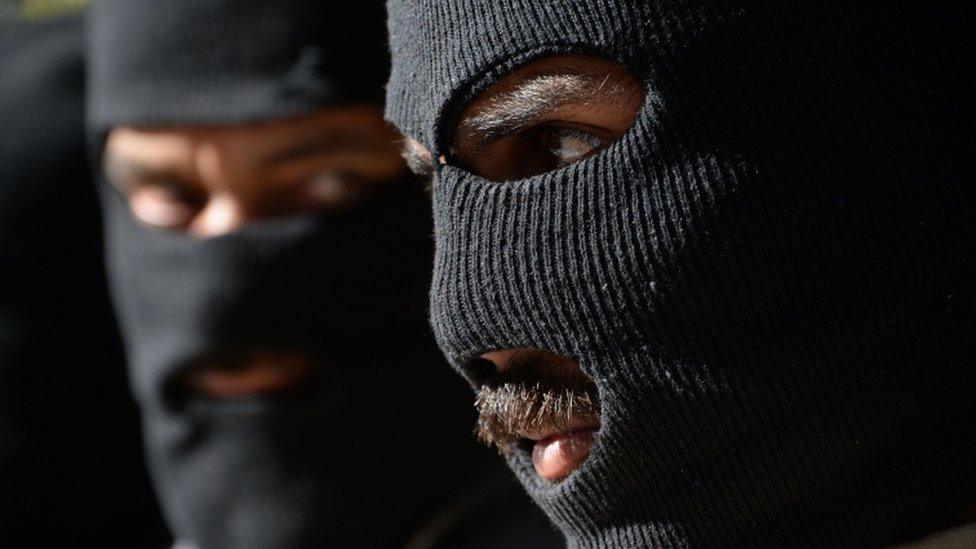
- Published28 February 2018
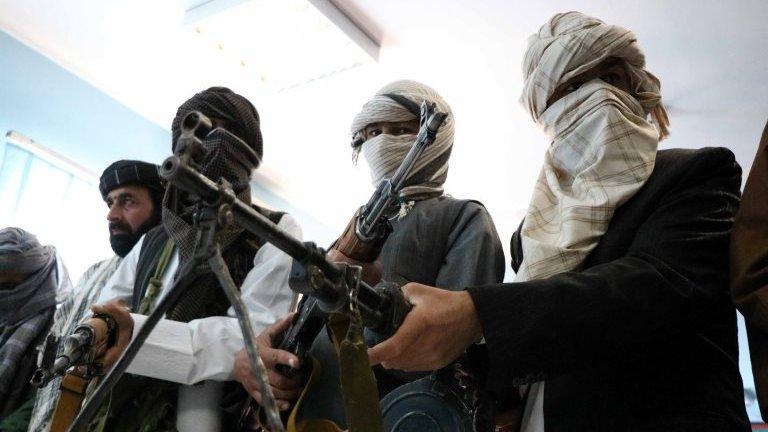
- Published31 January 2018
